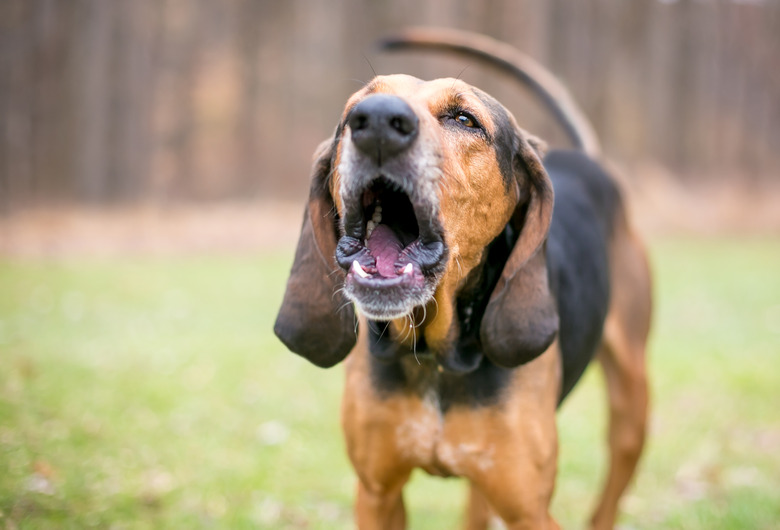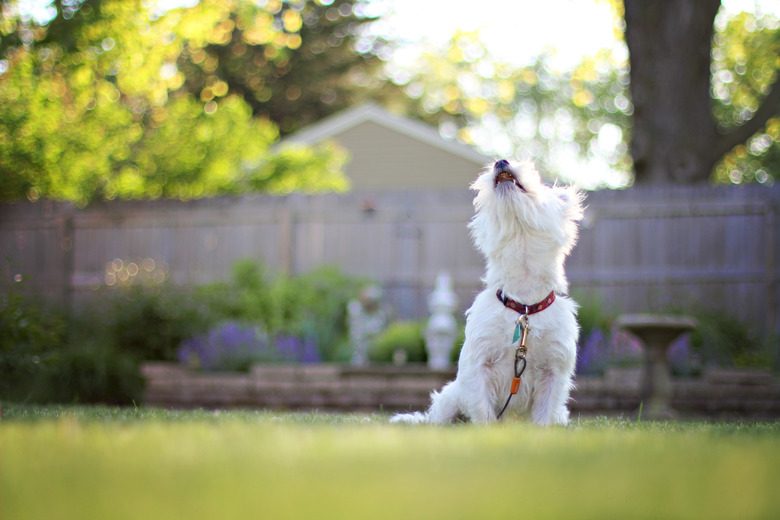What To Do For Dogs Who Are Hoarse?
If your dog's rumbling bark changes and suddenly turns to a throaty croak, chances are they're suffering from hoarseness, or dog laryngitis, which is inflammation of the larynx. While some cases of hoarseness clear up naturally within a day or two, pet owners should know that veterinary intervention is crucial in others. Therefore, treatments for a hoarse dog range from ice water and rest to veterinary intervention and medication.
Can dogs get hoarse?
Can dogs get hoarse?
Yes, dogs can absolutely become hoarse. Just like when a human's voice gets hoarse, a dog's bark or howl will become raspy, breathy, and quieter. Some might even sound like they're croaking or just making strange sounds.
Reasons your dog's bark is hoarse
Reasons your dog's bark is hoarse
There are a number of causes for a dog becoming hoarse, ranging from a simple scratchy throat to very serious medical issues, so it's best to contact your veterinarian if your dog is hoarse for more than a couple of days.
Dog laryngitis from excessive barking
Dogs who get bored or anxious when left alone sometimes bark for hours to pass the time. If your dog sounds hoarse when you get home, they might be a nuisance barker.
One home remedy for dog laryngitis is to soothe their throat by offering ice cubes to lick and let their voice, or larynx, recover by keeping calm. Before leaving home the next time, tire them out with a long walk. Allowing them to sniff frequently stimulates the brain, and this can be equally tiring.
If they're really high energy and you have the right equipment, run them alongside a bicycle. Note, however, that without the correct bike leash, this can be very dangerous. Puzzle treats can keep them entertained when you leave, cutting down on their bark time. If they continue barking themself hoarse, you might need to call a professional trainer to help conquer the noisy habit, especially if the neighbors complain.
Dog hoarseness from medical procedures
It is possible to have a dog debarked, though it's not recommended. If you've just gotten your dog from a rescue shelter and discover they can't bark above a hoarse whisper, their previous owners might have had them debarked. The procedure cuts tissues in the vocal cords but doesn't remove them, whittling the dog's vocalization down to a permanent hoarse wheeze instead of a rumbling bark.
Also, medical procedures, such as dental cleaning, spaying and neutering, or other surgery where your dog had a tube down their trachea, might leave them temporarily hoarse. The condition corrects itself within a day or two with no intervention but call your DVM if trouble breathing, gagging, or other respiratory distress accompanies the hoarseness or if your dog can't bark and coughs excessively days after surgery.
Dog can't bark and coughs
If your dog's hoarseness comes on suddenly, it might be because of a respiratory infection, such as kennel cough. Respiratory infection is usually accompanied by coughing or labored breathing. If your dog isn't coughing, look in your dog's throat with a flashlight, noting any areas of irritation or coating on the tissues lining the throat.
Listen to your dog's breathing. If it is raspy, it that can indicate an infection or paralysis of the larynx. It can also be due to a lung infection or heart disease. Call your veterinarian and explain the symptoms you've observed. Prompt veterinary treatment is crucial, as objects or infections of the throat sometimes cause food to wind up in the lungs, setting up your dog for pneumonia.
Laryngeal paralysis in dogs
Older, large-breed dogs are prone to a pet health condition called laryngeal paralysis, a disease resulting from a weak nerve around the larynx. The problem occurs as a hereditary defect in some dog breeds, such as Dalmatians, Siberian huskies, and bull terriers.
In severe and congenital cases or cases where the dog was born with the condition, surgery is needed. It's also necessary in cases of older dogs, as it won't go away unless surgery is performed. Mild cases can usually be managed with medication and by avoiding things like strenuous exercise and hot environments.
Hypothyroidism (a less active thyroid) or tumors of the thyroid gland, can contribute to the condition. Trauma from choke chain injuries can also be the culprit. If this is the case, your dog's hoarse bark is characteristically accompanied by a roaring or whistling sound when they inhale.
How to treat a dog with a hoarse bark
How to treat a dog with a hoarse bark
Your veterinarian is the best person to contact in the case of a dog that sounds hoarse or like they have a dry cough. They can not only nail down the cause of the hoarseness with an exam or even possible X-rays but can also recommend and prescribe treatments. They may prescribe anti-inflammatory medications or even recommend surgery depending on the cause.
If your dog had trauma or surgery, they will need to stay confined and rest during the healing process. Just like humans, a hoarse dog's voice needs to rest, which means keeping them away from situations where they would normally bark or howl.
If your dog has a choke chain, get rid of it immediately and replace it with a gentle fabric collar. Your veterinarian might prescribe anti-inflammatories. You can also give your dog some cold water with ice to help ease inflammation. If there is trauma without veterinary intervention, your dog's damaged, inflamed, or irritated airway can become progressively obstructed or collapse, resulting in suffocation.
The bottom line
The bottom line
A dog can become hoarse for a number of reasons, not all of which are illness-related. Avoiding choke chains and collars and situations where your dog feels a need to excessively howl or bark work as good methods of prevention. If your dog is hoarse for more than a day or two, contact your animal hospital immediately for diagnosis and treatment, as it could be a serious but likely treatable health issue.

